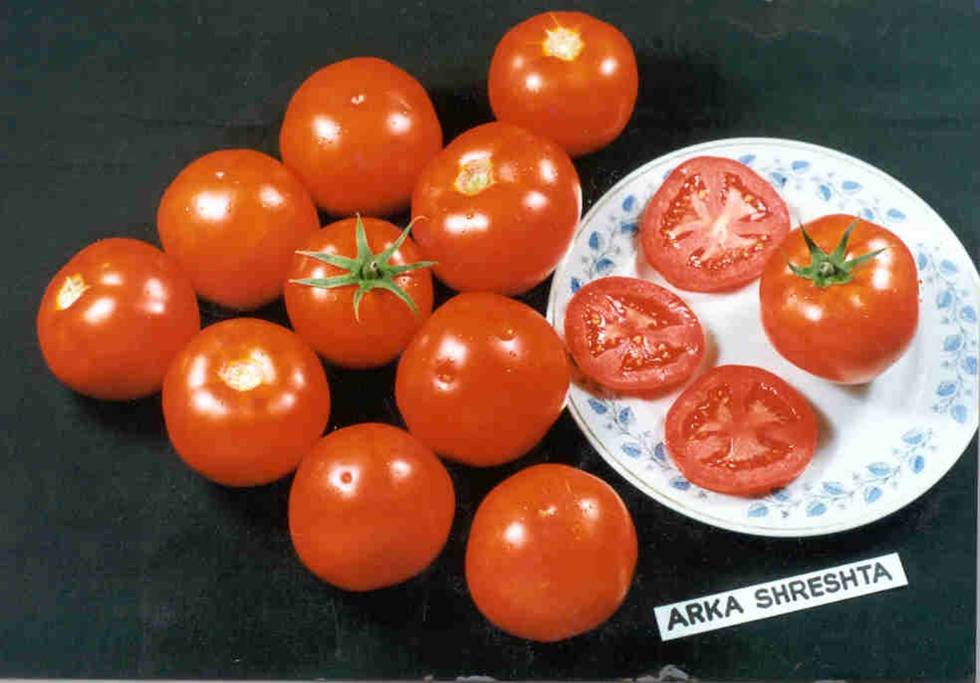IIHR develops disease-resistant Tomato hybrids
Indian Institute of Horticultural Research develops two Tomato hybrids specially meant for processing industry as tomatoes are disease –resistant and cost-effective.
The Indian Institute of Horticultural Research (IIHR), Bengaluru has developed 2 tomato hybrids, exclusively for the processing industry. These tomato hybrids, Arka Apeksha and Arka Vishes, are disease-resistant. It is expected that these tomatoes will increase farmers’ incomes through higher yields. It also decrease the processing costs because of its higher total soluble solids (TSS) & lycopene content.
First Tomato hybrid for processing industry
According to A T Sadashiva, principal researcher at IIHR “It is for the first time that tomato hybrids have been developed for the processing industry. Growers can expect minimum 25% increase in yields at 50 tonnes / hectare, and the potential exists to harvest up to 100 tonnes / hectare under precision farming with the use of drip irrigation. While existing tomato hybrids give a minimum yield of 40 tonnes / hectare.”
Higher Yield
He further said that “Higher yields will reduce the cost of cultivation to the growers. Also, the new hybrids are resistant to disease like tomato leaf curl virus, bacterial wilt & early blight that help farmers reduce the number of sprays on the crop”.
Moreover, the total soluble solids or TSS in the new tomato hybrids is 10% higher. The lycopene content, the pigment, which lends colour to tomato, is about 25 to 30% more than the existing hybrids. Sadashiva said, “The industry prefers higher TSS because it reduces their energy consumption”.
Hybrid on trial basis
HS Oberoi, Head of Division of Post-Harvest Technology & Engineering, IIHR said that developed from existing lines, these new varieties are suitable for mechanised harvesting too. He also added that “We are hoping to release the new tomato hybrids for commercial cultivation by December 2019”.
Farmer producer companies like Sahayadri FGC have already planted the new hybrids on trial basis. IIHR is currently in consultation with processors like Sun Sip, Bector Foods Specialities and Jadli Foods etc. to facilitate linkage with farmers for promoting the new varieties.
Current production of Tomato in India
Tomato production in India is estimated at 19.39 million tonnes in 2018-19, which is marginally lower than 19.759 mt produced in previous season. Over 90% of the tomatoes produced in the country are consumed fresh.
Tomato processors usually procure & process vegetable during the peak season in January to March, when rates are low. The processed tomato that is converted & stored in the form of paste is used as a base for products like sauces and ketchup. Around 7 kg of tomato is needed to produce 1 kg of tomato paste. According to industry sources, India needs about 1.2 lakh tonnes of tomato paste of which 70,000 tonnes is manufactured locally and the remaining is imported, mainly from China.
Indian Institute of Horticultural Research develops two














